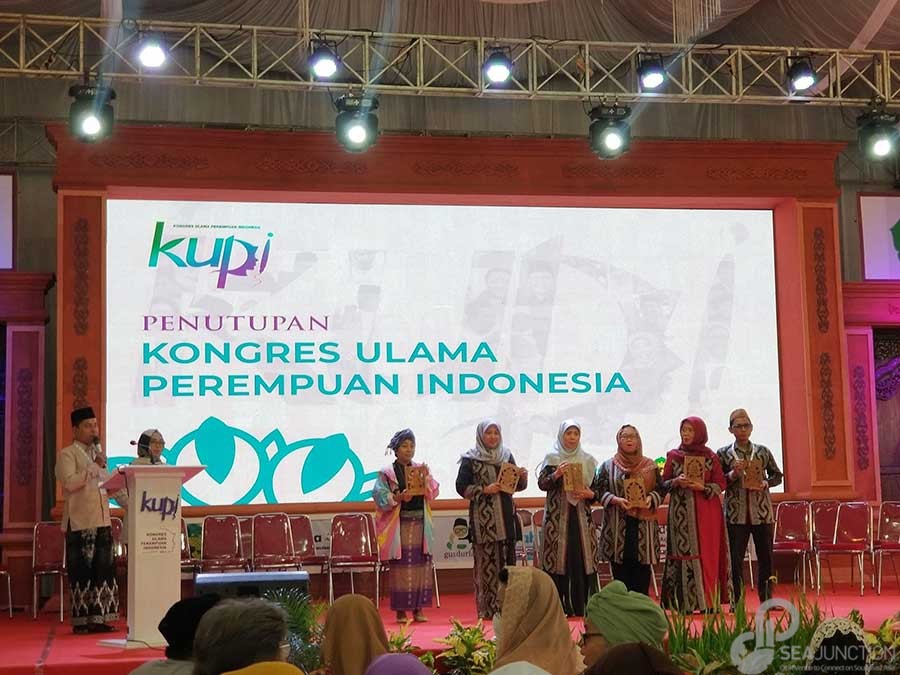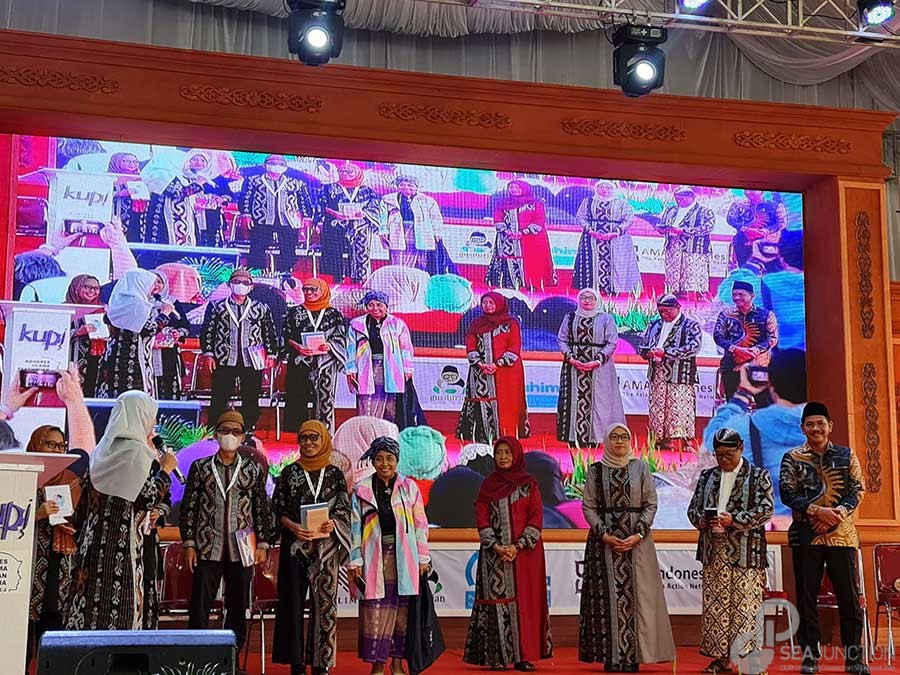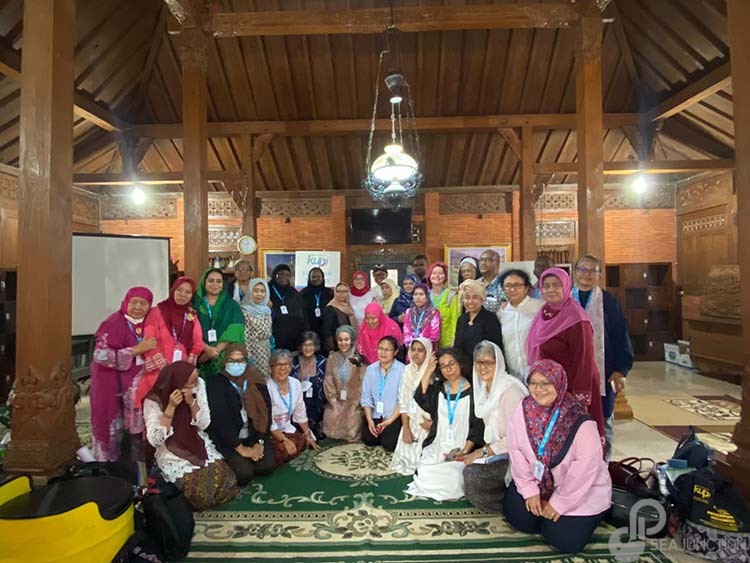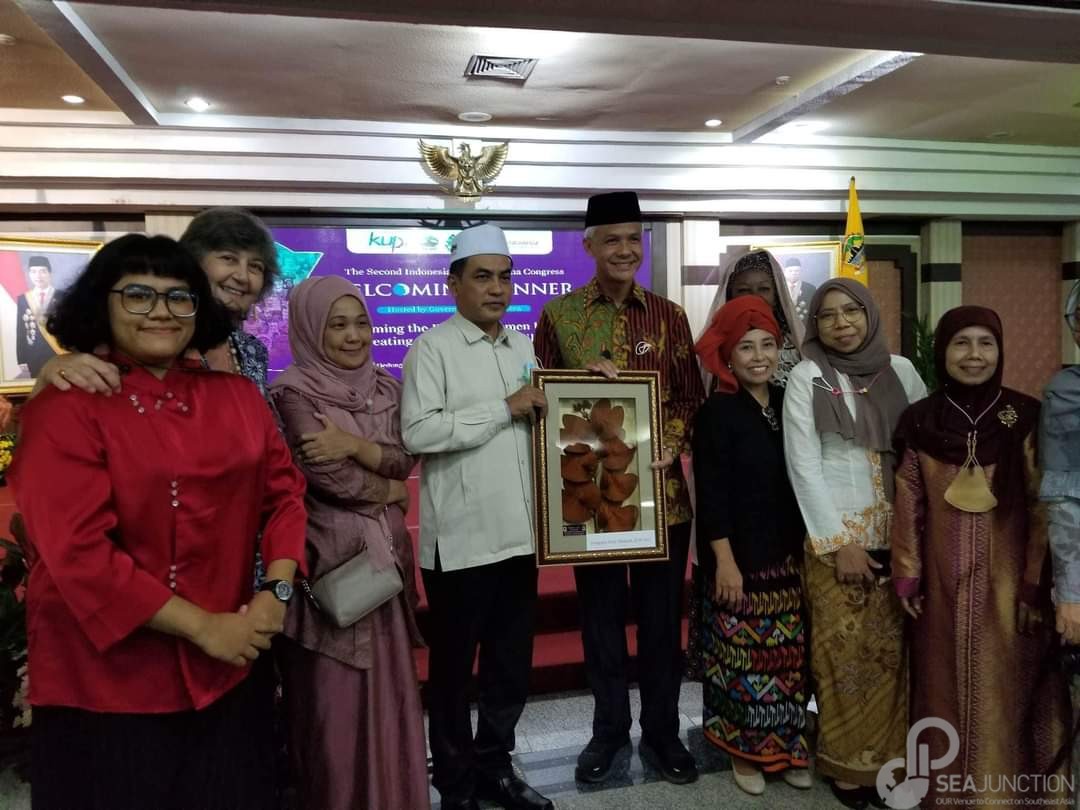Semarang and Jepara, Indonesia. Following the first KUPI Congress in 2017, the International Conference and Indonesian Women’s Ulema Congress (KUPI)-2 was held from 22nd November to 26th November 2022 at the Universitas Islam Negeri (UIN) Walisongo Semarang and Hasyim Asy’ari Islamic Boarding School, Bangsri Jepara, Central Java, Indonesia. The second Congress was held under the united theme of “Affirming The Roles of Women Ulama in Creating A Just Islamic Civilization.”
By redefining the word “Ulama” – Quranic scholars, conventionally referred to male scholars – to encompass religious scholars and clerics of all genders, the movement aimed to reclaim religious space that has long been male-dominated to begin to include others as well. KUPI gathered with the purpose to connect and provide support to multiple actors who work together to achieve one goal, gender justice. By recognizing the works of female religious leaders, scholars, and community leaders, KUPI aimed to provide validation to their work and knowledge in order to reclaim the space for them in the religious community and to create a just Islamic society.

At the KUPI 2, we witnessed the congress of international participants from over 30 countries, from North America to Africa, and national participants from all regions of Indonesia. There were also regional and national government and military representatives who were present to give recognition to this movement through participation in the opening and closing ceremonies, and public discussion held as a part of the event. The central theme of the event “Affirming The Roles of Women Ulama in Creating A Just Islamic Civilization” encompassed the shared ideology of this movement where justice is the foundation of all actions. The KUPI methodologies employed the Islamic principle of ma‘rūf or acceptance of that which is good, fair, and equal, reciprocity, and inclusion of women’s perspective. In practice as evident in the halaqa, traditionally refers to the Islamic study groups, but in this case, it was used for discussion sessions hosted as part of the multiday event at the KUPI-2 as a part of the process of fat’wah, a formal ruling or interpretation on a point of Islamic law, development as part of the main output from the congress. Participants, who were scholars from multiple backgrounds including Islamic studies contributed by providing testimonials on relevant topics from multiple approaches, led by moderators. Following the testimonial session, the participants participated in providing evidence from Hadiths, reliable nations of cases, and actions from the prophetic times, verses from the Quran as well as national and international principles that supported the topic being discussed. All evidence was then gathered in the fat’wah formulation process before being issued and disseminated.
 There are many significant differences between the Muslim community in Thailand and Indonesia. The process and scholastic approach to fat’wah development are not commonly seen here in Thailand, as the size of the Muslim community is significantly smaller. The scholastic work and trends in approach toward religious engagement in Thailand also commonly focus on social engagement and anthropological work. This is due to the limited number of recognized institutions for higher Islamic education. In addition, there are also a smaller number of Thai Islamic organizations that work directly in curating multidisciplinary networks on gender issues, particularly in advancing legislation on the issue of gender justice.
There are many significant differences between the Muslim community in Thailand and Indonesia. The process and scholastic approach to fat’wah development are not commonly seen here in Thailand, as the size of the Muslim community is significantly smaller. The scholastic work and trends in approach toward religious engagement in Thailand also commonly focus on social engagement and anthropological work. This is due to the limited number of recognized institutions for higher Islamic education. In addition, there are also a smaller number of Thai Islamic organizations that work directly in curating multidisciplinary networks on gender issues, particularly in advancing legislation on the issue of gender justice.

Despite the societal differences between Indonesia and Thailand, the opportunity to be an observer of an event like the KUPI-2 has been a uniquely eye-opening and empowering experience. Religious space is more often than not perceived as an exclusively male space for so long and breaking that so-called “glass ceiling” is not something to take lightly. Without enough support, network, and resources, both in knowledge and human resources, it is almost impossible. But through long years of tireless work and perseverance, KUPI has managed to give us a glimpse of the future of gender justice in religious space.
 The Asian Muslim Action Network (AMAN) Indonesia, has been a pioneer of peace education for women at the grassroots, conducting community organizing through women’s groups and conducting national and international advocacy related to Women, Peace and Security. Please visit www.amanindonesia.org to learn more
The Asian Muslim Action Network (AMAN) Indonesia, has been a pioneer of peace education for women at the grassroots, conducting community organizing through women’s groups and conducting national and international advocacy related to Women, Peace and Security. Please visit www.amanindonesia.org to learn more
Vinissa Kattiya-aree is a graduate student at the Master of Art in International Development Studies (MAIDS) at Chulalongkorn University in Thailand and a researcher at SEA Junction, Thailand (www.seajunction.org). Prior to her studies at MAIDS, she received a Bachelor of Science in Human Development and Community Engagement from Temple University in Pennsylvania, USA. As a Bangkok native with a multicultural background who grew up in a family of humanitarian workers, she has a keen interest in anthropology and identity and hopes to pursue more research in the international development field.


